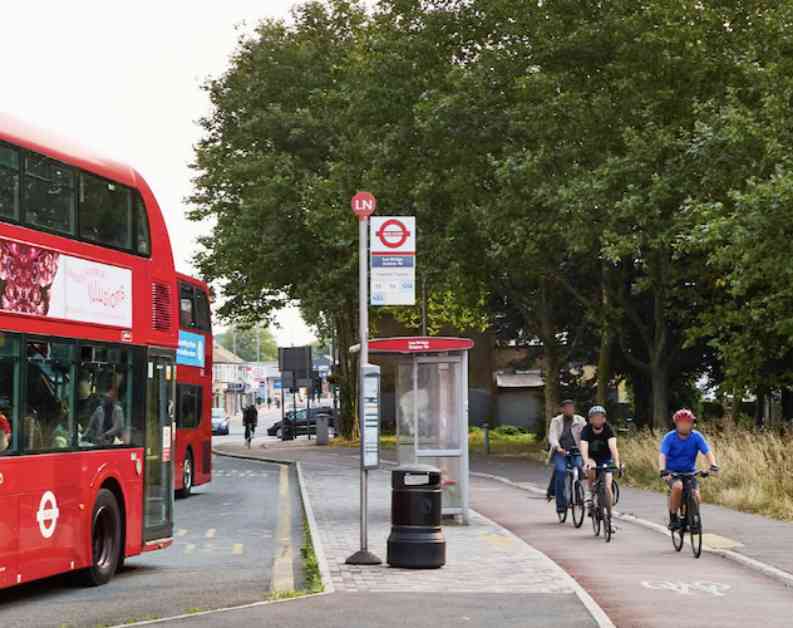A member of the London Assembly, Elly Baker, has once again called on Mayor Sadiq Khan to halt the implementation of bus stop bypasses in London. This request comes in light of concerns about the safety of blind individuals and other pedestrians when special road designs for cyclists are involved.
In a letter to the Mayor, Baker, who serves as the Assembly Labour group’s spokesperson on transport issues, highlighted worries that have been previously expressed. She was prompted to address this issue after reviewing a report commissioned by Guide Dogs and holding a meeting with the National Federation of the Blind.
The recent research, conducted by UCL academics for Guide Dogs, reveals that individuals with vision impairments view these road infrastructures as a constant threat to their safety. This perception deters many from using buses, as they must navigate cycleways to access their transportation services.
Baker emphasized that any road design requiring pedestrians to cross cycleways to reach their bus service raises significant concerns. She privately communicated her apprehension that relying solely on collision data for safety reviews may not be sufficient, considering the prevalent anxiety surrounding the use of “floating bus stops” and similar structures.
Baker emphasized the importance of maintaining and expanding access to London’s bus network, which remains the most accessible form of transport. She stressed the need to prioritize affordable, accessible, and effective bus services to benefit the community.
Responses to Baker’s call for pausing bus stop bypasses varied, with some individuals suggesting alternative areas of focus, such as addressing concerns related to cars or emphasizing the importance of protected cycle lanes. The debate surrounding the safety implications of different road designs continues among experts and stakeholders.
As the discussion on bus stop bypasses and road safety for pedestrians unfolds, it becomes crucial to consider the diverse perspectives and concerns raised by various groups. Finding a balance between promoting cycling infrastructure and ensuring the safety of vulnerable road users remains a complex challenge for policymakers and urban planners. The ongoing dialogue between stakeholders will play a vital role in shaping future transport policies and infrastructure developments in London.





















